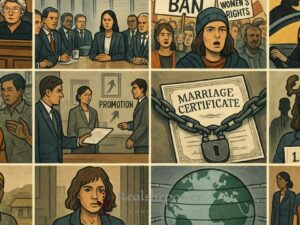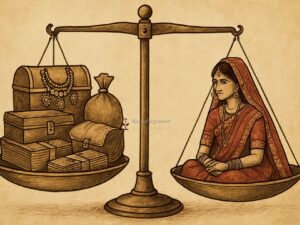Knowing your rights is essential to safeguarding your individual liberties and protecting yourself from potential abuses of power. In any society, understanding your legal rights empowers you to make informed decisions, seek redress, and stand up for justice. This article serves as a comprehensive guide to various rights, ranging from civil rights and human rights to digital rights and consumer rights, with authentic links for further reference.
Table of Contents
Civil Rights
Civil rights encompass the fundamental liberties granted to individuals by law to protect them from discrimination and ensure equal treatment. These rights include:
a. Freedom of Speech: The First Amendment of the United States Constitution protects the right to free speech, allowing individuals to express their ideas and opinions without censorship or fear of retaliation. (Source: https://www.usa.gov/free-speech)
b. Right to Privacy: The right to privacy ensures that individuals’ personal information and activities remain confidential, safeguarding against unwarranted surveillance and intrusion. (Source: https://www.aclu.org/issues/privacy-technology)
c. Freedom of Religion: The freedom of religion grants individuals the right to practice any religion of their choice or none at all, without discrimination or persecution. (Source: https://www.justice.gov/crt/religious-freedom-public-accommodations)
Human Rights
Human rights are universal entitlements inherent to all individuals, regardless of nationality, race, gender, or social status. Some key human rights include:
a. Right to Life: The most fundamental human right is the right to life, ensuring that every person has the inherent right to live and be protected from violence or harm. (Source: https://www.un.org/en/udhrbook/pdf/udhr_booklet_en_web.pdf)
b. Right to Education: This right ensures that all individuals have access to education without discrimination, allowing them to reach their full potential and participate fully in society. (Source: https://www.ohchr.org/en/issues/education/pages/internationaleducationday.aspx)
c. Right to Freedom from Torture: The prohibition of torture and cruel, inhuman, or degrading treatment is a fundamental human right protected under international law. (Source: https://www.amnesty.org/en/what-we-do/torture/)
Digital Rights
In the digital age, digital rights are becoming increasingly vital as technology permeates every aspect of our lives. These rights include:
a. Right to Online Privacy: Individuals have the right to control their personal data and how it is collected, stored, and used online. (Source: https://www.eff.org/issues/privacy)
b. Freedom of Information: Citizens have the right to access information held by public authorities, promoting transparency and accountability. (Source: https://www.opengovpartnership.org/theme/freedom-of-information/)
c. Net Neutrality: The principle of net neutrality ensures that internet service providers treat all online content equally, without favoritism or discrimination. (Source: https://www.fcc.gov/general/open-internet)
Consumer Rights
Consumer rights protect individuals in their interactions with businesses and ensure fair treatment in the marketplace. Some key consumer rights include:
a. Right to Safety: Consumers have the right to purchase products and services that are safe and not hazardous to their health or well-being. (Source: https://www.consumer.ftc.gov/articles/0380-businesses-must-provide-safe-products)
b. Right to Information: Consumers have the right to accurate and clear information about products and services before making a purchase. (Source: https://www.consumer.ftc.gov/articles/0113-shopping-tips)
c. Right to Redress: If consumers encounter problems with a product or service, they have the right to seek redress, refunds, or compensation. (Source: https://www.consumer.ftc.gov/articles/0221-billing-disputes)









































